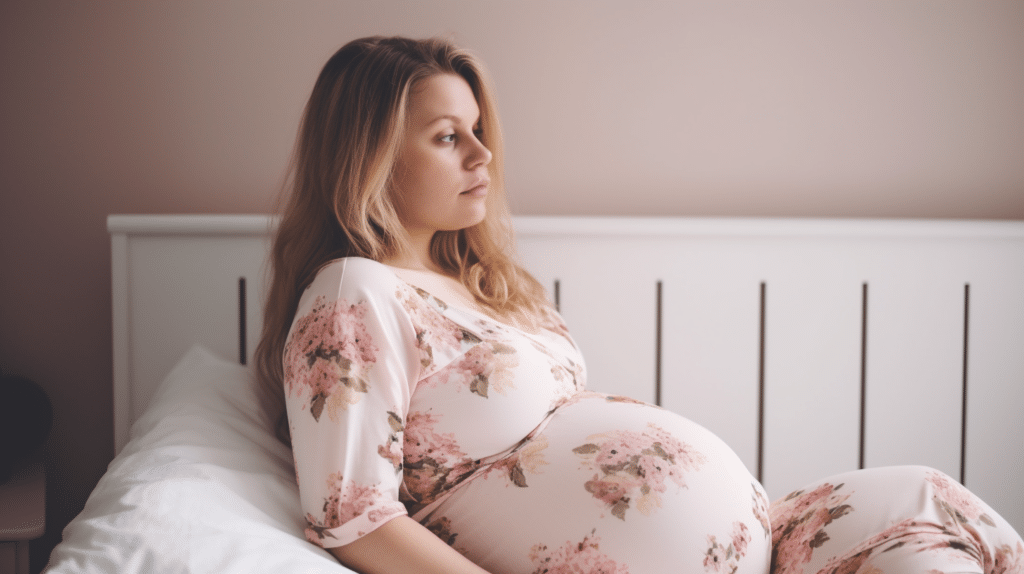Sleep is an essential part of our daily lives, necessary for maintaining optimal physical and mental health. However, recent research suggests that women require more sleep than men. This phenomenon can be attributed to various factors such as hormonal shifts throughout a woman’s life, including the menstrual cycle, pregnancy, and menopause. Understanding the reasons behind this disparity in sleep needs between genders is crucial for promoting better sleep hygiene and overall well-being among women.
Hormonal fluctuations play a significant role in shaping women’s sleep requirements. The menstrual cycle is characterized by regular hormonal changes that can affect sleep quality and duration. During the premenstrual phase, many women experience mood swings, irritability, and discomfort, which can disrupt their ability to fall asleep or stay asleep throughout the night. Additionally, the hormonal changes that occur during pregnancy can lead to increased fatigue and a greater need for restorative sleep. Similarly, menopause brings about hormonal imbalances that can contribute to sleep disturbances such as hot flashes and night sweats. By understanding these specific influences on women’s sleep patterns, strategies can be developed to address their unique needs and promote better overall health outcomes.
Hormonal Shifts and Sleep Requirements
Hormonal shifts throughout the menstrual cycle contribute to variations in sleep requirements between women and men. Women experience monthly hormonal imbalances due to their menstrual cycles, which can affect their sleep patterns. During the different phases of the menstrual cycle, levels of hormones such as estrogen and progesterone fluctuate, leading to changes in sleep architecture and quality. These hormonal fluctuations can disrupt a woman’s ability to fall asleep or stay asleep, resulting in sleep disturbances.
Furthermore, these hormonal imbalances can also increase the risk of developing sleep disorders in women. For instance, one common sleep disorder associated with hormonal changes is premenstrual syndrome (PMS). PMS is characterized by a range of physical and emotional symptoms that occur prior to menstruation and can significantly impact a woman’s ability to get adequate restful sleep. Additionally, other conditions such as premenstrual dysphoric disorder (PMDD) and menopause can further exacerbate hormonal imbalances and disrupt women’s sleep patterns.
Hormonal shifts throughout the menstrual cycle play a significant role in variations in sleep requirements between women and men. These fluctuations can lead to disruptions in sleep architecture and quality for women, increasing their susceptibility to developing various sleep disorders such as PMS or PMDD. Understanding these hormonal influences on women’s sleep is crucial for addressing their unique needs when it comes to obtaining sufficient restorative rest.
Impact of Menstrual Cycle on Sleep Quality
The impact of the menstrual cycle on sleep quality is evident in various studies conducted. Sleep disorders and menstrual cycle are closely linked, with women experiencing changes in sleep patterns and disturbances during different phases of their menstrual cycle. These disruptions can be attributed to hormonal fluctuations, specifically changes in estrogen and progesterone levels. During the luteal phase, which occurs after ovulation, women may experience difficulty falling asleep, decreased total sleep time, and increased wakefulness throughout the night. This is believed to be a result of elevated progesterone levels, which can have sedative effects but also lead to increased body temperature and discomfort.
To manage sleep disruptions during menstruation, several strategies can be employed. Maintaining a consistent sleep schedule by going to bed and waking up at the same time every day can help regulate circadian rhythms and promote better sleep quality. Engaging in relaxation techniques such as deep breathing exercises or meditation before bed can also aid in reducing stress levels and promoting relaxation for better sleep. Creating a comfortable sleeping environment by keeping the bedroom cool, dark, and quiet can further enhance sleep quality. Additionally, avoiding caffeine intake close to bedtime is recommended as it can interfere with falling asleep. Lastly, considering over-the-counter pain relievers for managing menstrual cramps may also alleviate discomfort that could disrupt sleep during this time.
The impact of the menstrual cycle on sleep quality is well-documented through various studies. Sleep disorders often coincide with different phases of the menstrual cycle due to hormonal shifts. By implementing strategies such as maintaining a consistent sleep schedule, practicing relaxation techniques before bed, creating an optimal sleeping environment, avoiding caffeine intake close to bedtime, and considering pain relief options for menstrual symptoms management; women can effectively manage their disrupted sleep patterns during menstruation and improve overall sleep quality.
Premenstrual Phase and Sleep Disruptions
Premenstrual phase, characterized by physical and emotional changes, presents sleep disruptions that can impact overall well-being. Many women experience premenstrual symptoms such as bloating, breast tenderness, mood swings, and irritability during this phase. These symptoms can contribute to difficulties falling asleep or staying asleep throughout the night. Hormonal fluctuations during the premenstrual phase may lead to increased body temperature and discomfort, making it challenging for women to find a comfortable sleeping position. Additionally, heightened emotions and mood swings can result in heightened anxiety or depression, further hindering sleep quality.
To mitigate these sleep disruptions during the premenstrual phase, practicing good sleep hygiene is essential. Establishing a consistent bedtime routine and ensuring a peaceful sleep environment can promote better sleep quality. Creating a relaxing atmosphere by dimming lights and avoiding stimulating activities before bed can help signal the body that it is time to wind down. Engaging in relaxation techniques such as deep breathing exercises or meditation may also aid in reducing stress levels and promoting better sleep. Additionally, avoiding caffeine and alcohol intake close to bedtime is recommended since they can interfere with falling asleep peacefully. Implementing these sleep hygiene tips during the premenstrual phase may help alleviate some of the sleep disturbances experienced by women, ultimately contributing to their overall well-being.
Hormonal Changes during Pregnancy and Sleep

During pregnancy, the body undergoes significant hormonal changes that can affect sleep patterns and quality. Hormonal fluctuations during pregnancy can lead to both physical and emotional changes that impact a woman’s ability to sleep. One common issue is sleep deprivation, which often occurs due to discomfort, frequent urination, or increased anxiety.
During pregnancy, many women experience discomfort while trying to find a comfortable sleeping position. The growing belly puts pressure on various organs and may cause back pain or heartburn, making it difficult for pregnant women to find a suitable position for sleep. Additionally, hormonal changes can increase the need for urination during the night. As a result, pregnant women may wake up multiple times throughout the night to use the bathroom, disrupting their sleep patterns.
Moreover, hormonal shifts during pregnancy can also contribute to increased levels of anxiety and stress. These emotional changes may lead to racing thoughts or difficulty in falling asleep. Women may worry about the health of their baby or have concerns about labor and motherhood. This heightened anxiety can make it challenging for pregnant women to relax and fall asleep easily.
Postpartum sleep patterns are another important aspect related to hormonal changes during pregnancy. After giving birth, new mothers often face disrupted sleep due to caring for their newborns’ needs throughout the night. Sleep interruptions are common as infants require feeding every few hours and may experience colic or other issues that cause them to wake frequently at night. This continuous disruption in sleep can further exacerbate feelings of fatigue and exhaustion experienced by new mothers.
Hormonal changes during pregnancy significantly impact a woman’s ability to achieve sufficient and restful sleep. Pregnancy-related discomforts such as back pain or heartburn disrupt comfort while fluctuating hormones contribute towards increased anxiety levels that hinder falling asleep easily. Furthermore, postpartum responsibilities add an extra layer of interrupted sleep as new mothers cater tirelessly for their babies’ needs throughout the night. Therefore, understanding these effects is crucial in providing appropriate support and interventions to help pregnant women and new mothers manage sleep deprivation during this transformative period.
Menopause and Sleep Disturbances
Menopause, a natural biological process that marks the end of a woman’s reproductive years, is often associated with sleep disturbances. During menopause, women experience hormonal changes that can lead to various symptoms such as hot flashes, night sweats, and mood swings. These symptoms can significantly impact sleep quality and quantity.
Sleep disorders are common among menopausal women. One of the most prevalent sleep disorders during this stage is insomnia, characterized by difficulties falling asleep or staying asleep throughout the night. Hormonal fluctuations during menopause can disrupt the body’s internal clock and contribute to insomnia. Additionally, night sweats and hot flashes can cause discomfort and frequent awakenings during the night, further disrupting sleep patterns.
Other sleep disorders such as restless leg syndrome (RLS) and obstructive sleep apnea (OSA) also tend to increase in prevalence among menopausal women. RLS causes an irresistible urge to move the legs while at rest, making it challenging for women to relax and fall asleep. OSA is a condition where breathing repeatedly stops and starts during sleep due to relaxation of throat muscles. The decrease in estrogen levels experienced during menopause is thought to play a role in the development or worsening of these conditions.
The relationship between menopause symptoms and sleep disorders is complex and multi-faceted. It is important for healthcare providers to be aware of these issues so that appropriate interventions can be implemented. Managing menopausal symptoms through hormone replacement therapy or lifestyle modifications may help improve both overall well-being and sleep quality for women going through this transitional phase in life.
Importance of Rest and Relaxation for Women’s Well-being
Rest and relaxation play a crucial role in maintaining overall well-being and should be prioritized by individuals regardless of their reproductive stage. For women, incorporating restorative practices and self-care routines into their daily lives becomes even more essential due to the unique challenges they face. Women often juggle multiple roles as caregivers, professionals, and homemakers, which can lead to increased stress levels and fatigue. Engaging in restful activities such as meditation, deep breathing exercises, or taking relaxing baths can help alleviate stress and promote physical and mental rejuvenation.
In addition to managing everyday responsibilities, women’s bodies undergo various hormonal changes throughout their lives. These changes include menstruation, pregnancy, childbirth, and menopause. Each stage brings its own set of physical discomforts and emotional challenges that can disrupt sleep patterns. By prioritizing rest and relaxation, women can help regulate their body’s natural rhythms and improve sleep quality. Developing a consistent bedtime routine that includes winding down before sleep, avoiding electronic devices near bedtime, creating a comfortable sleeping environment with adequate darkness and temperature control are all important strategies for enhancing sleep hygiene. Furthermore, engaging in activities that promote relaxation will not only benefit women’s physical health but also contribute to their emotional well-being by reducing anxiety levels and promoting overall life satisfaction.
Factors Contributing to Women’s Increased Sleep Needs
Factors such as hormonal fluctuations and the demands of multiple roles contribute to an increased physiological and psychological need for adequate sleep among individuals in the female population. Hormonal imbalances, which are common during menstruation, pregnancy, and menopause, can affect women’s sleep patterns. Fluctuations in estrogen and progesterone levels can lead to insomnia, restless legs syndrome, or other sleep disorders. Sleep disturbances during these hormonal changes can further exacerbate mood swings, irritability, and fatigue experienced by women.
In addition to hormonal imbalances, the demands of multiple roles that many women juggle also contribute to their increased sleep needs. Women often take on various responsibilities such as caregiving for children or aging parents, managing household chores, pursuing careers or education, and maintaining social relationships. Balancing these roles can be physically and mentally exhausting, leaving women with a greater need for restorative sleep. Chronic stress resulting from these demands can disrupt sleep patterns and lead to conditions like insomnia or anxiety-related disorders.
Overall, factors such as hormonal imbalances and the demands of multiple roles significantly contribute to women’s increased sleep needs. Understanding these factors is crucial in addressing any potential sleep disorders or disruptions that may affect women’s overall well-being. By recognizing the importance of adequate restful sleep for females’ health and implementing strategies to support them in achieving it, we can promote better physical and mental health outcomes for women across different stages of life.
Research on Sleep Differences between Women and Men
Sleep research has revealed distinct variations in sleep patterns between individuals of different genders, providing valuable insights into the nuances of sleep differences. One area of study focuses on the influence of hormones on sleep patterns. Hormonal fluctuations throughout the menstrual cycle can affect women’s sleep quality and quantity. For example, during the premenstrual phase, levels of progesterone increase, which can lead to symptoms such as mood swings, anxiety, and insomnia. Additionally, pregnancy is associated with significant hormonal changes that can disrupt women’s sleep. The increased levels of progesterone and estrogen in pregnant women can cause frequent awakenings during the night and difficulty falling back asleep.
Another aspect explored by sleep research is the prevalence of sleep disorders in women compared to men. Women are more likely to experience certain sleep disorders such as insomnia and restless leg syndrome (RLS). Insomnia affects a higher proportion of women than men, primarily due to biological factors like hormonal fluctuations or reproductive events like pregnancy or menopause. RLS is also more common in women and can be linked to iron deficiency anemia or hormonal changes during pregnancy.
Ongoing research on gender differences in sleep highlights the role played by hormones in influencing sleep patterns among women. Understanding these variations is crucial for addressing specific concerns related to women’s health and well-being. Furthermore, recognizing the higher prevalence of certain sleep disorders in women emphasizes the need for tailored interventions and treatments that take into account these gender-specific differences.
Gender-specific Sleep Recommendations

Research on gender differences in sleep has led to the development of gender-specific sleep recommendations, which provide valuable guidance for optimizing sleep health and promoting overall well-being. Hormones play a significant role in shaping the sleep patterns and needs of men and women. For instance, women experience hormonal fluctuations throughout their menstrual cycle, with changes in estrogen and progesterone levels affecting their sleep quality. During the premenstrual phase, women may experience difficulty falling asleep due to increased anxiety or discomfort. Additionally, during pregnancy, hormonal changes can disrupt sleep patterns and lead to more frequent awakenings during the night. In contrast, men generally have more stable hormone levels throughout their lifetime, which may contribute to different sleep patterns compared to women.
Sleep disorders are also known to affect women’s health differently than men’s health. Women are more prone to certain types of sleep disorders such as insomnia and restless legs syndrome. Insomnia is characterized by difficulty falling asleep or staying asleep, while restless legs syndrome causes uncomfortable sensations in the legs that lead to an irresistible urge to move them. These disorders can significantly impact a woman’s quality of life, leading to daytime fatigue, mood disturbances, and decreased cognitive function. Moreover, research suggests that untreated sleep disorders in women may increase the risk of developing other health conditions such as cardiovascular diseases and depression.
Understanding gender differences in sleep is crucial for tailoring recommendations that address specific needs and promote optimal well-being. The impact of hormones on sleep patterns highlights the importance of considering these factors when designing interventions or treatments for individuals experiencing difficulties with their sleep quality or duration. Moreover, recognizing that certain sleep disorders disproportionately affect women underscores the need for targeted screening efforts and appropriate management strategies within healthcare systems. By prioritizing research on gender-specific aspects of sleep health, we can better support both men’s and women’s overall well-being through improved understanding and individualized care approaches.
Strategies for Improving Sleep Quality for Women
One effective approach for enhancing sleep quality in females involves implementing lifestyle modifications that support optimal rest and relaxation. These strategies aim to address common factors that may disrupt sleep, such as stress, poor sleep hygiene, and hormonal changes. Managing stress levels is crucial for improving sleep quality in women. Stress can contribute to insomnia and other sleep disorders by increasing arousal levels and interfering with the body’s ability to relax. Engaging in stress-reducing activities such as mindfulness meditation, deep breathing exercises, or engaging in hobbies can help alleviate stress and promote better sleep.
Another strategy for improving sleep quality in women is maintaining good sleep hygiene practices. This includes creating a consistent bedtime routine, ensuring a comfortable sleeping environment, and avoiding stimulating activities before bed. Establishing a regular sleep schedule helps regulate the body’s internal clock and promotes more restful sleep. It is also important to create a conducive sleeping environment by keeping the bedroom cool, dark, and quiet. Additionally, limiting exposure to electronic devices before bed can be beneficial as the blue light emitted from screens can interfere with melatonin production and disrupt the natural sleep-wake cycle.
Overall, implementing strategies that focus on reducing stress levels and promoting good sleep hygiene can significantly improve sleep quality in women. By incorporating these lifestyle modifications into their daily routines, women can enhance their overall well-being by obtaining the necessary amount of restorative sleep they need for optimal functioning throughout the day.
Conclusion
In conclusion, women have been found to require more sleep than men due to hormonal shifts and various life stages such as menstruation, pregnancy, and menopause. These hormonal changes can disrupt sleep patterns and lead to increased sleep needs. Research has shown that women tend to experience more sleep disturbances compared to men, necessitating gender-specific sleep recommendations. Strategies for improving sleep quality for women include maintaining a consistent sleep schedule, creating a relaxing bedtime routine, managing stress levels, and creating a comfortable sleeping environment. By understanding the unique factors contributing to women’s increased sleep needs and implementing these strategies, women can prioritize their restorative rest and overall well-being.


